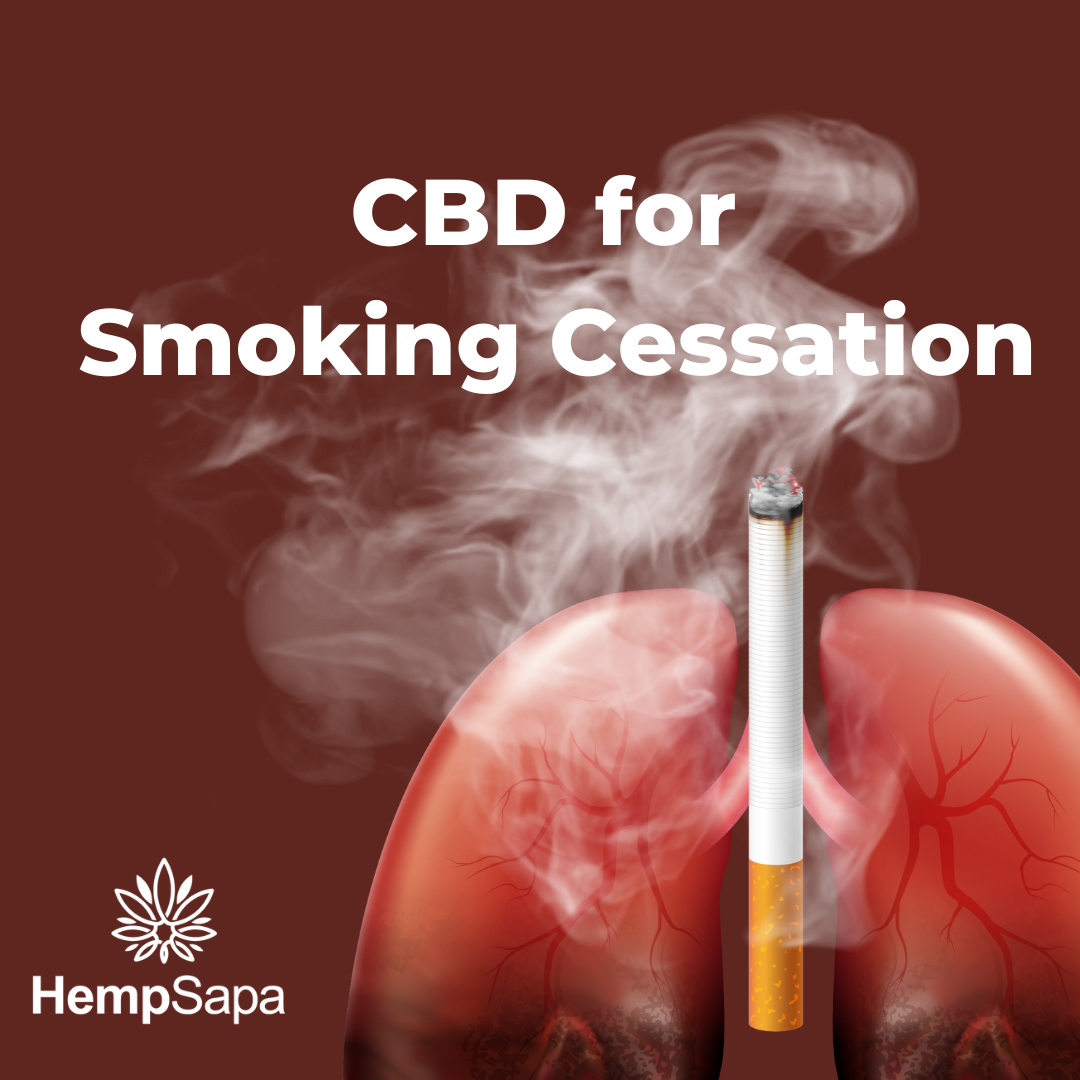The recent findings about the endocannabinoid system and cannabidiol (CBD) has opened up new chances for promising treatment of a variety of health problems. The system impacts the entire body, especially it regulates motivation of rewards which is associated with smoking preference. In relation to nicotine dependence, a cannabinoid receptor 1 inhibitor named rimonabant has been shown to reduce nicotine addiction, however it was withdrawn from the market due to neuropsychological side effects. In comparison with rimonabant, CBD was proven to be safe for human use and beneficial to relieve anxiety which is a primary symptom of tobacco withdrawal. In this paper, we aim to provide basic information about the use of CBD to help smoking cessation.
What are nicotine withdrawal symptoms and how can CBD help with smoking cessation?
When you stop smoking cigarettes suddenly, the receptors that are used to being activated with nicotine no longer being activated, and it means less dopamine - the brain rewarding chemicals. This may make the brain to collect your thoughts, and feelings of anxiety. These are withdrawal symptoms that result from tobacco addiction. Other symptoms include insomnia, cough, constipation, and depression.
CBD not only calms the anxiety, but it also reduces the degradation of anandamide - an endogenous CB1 receptor ligand to increase the feeling of happiness and well being which could help to improve mood and reduce stress during smoking cessation attempts.
What does the research say?
In 2013, a study was designed to assess the impact of CBD to quit smoking in smokers. There were 24 participants randomized to receive CBD inhaler or placebo for one week with 12 smokers in each group. During one week of treatment, the authors found that those who used CBD significantly reduced the number of cigarettes smoked per day by about 40%, while smokers using placebo showed no difference in the number of cigarettes. The results indicated that CBD may be a potential treatment for nicotine addiction.
A 2018 study conducted in the UK examined the effect of CBD versus placebo in 30 smokers to investigate attentional bias using tobacco cues. The study found that a CBD dose of 800 mg per day reduced the impact of attentional bias towards the cigarette cues as well as impaired the pleasantness of the cigarette images as compared to placebo. In addition, CBD didn’t affect withdrawal and craving. This result highlighted the effects of CBD as a promising agent for tobacco use disorder in particular, and addictive disorder in general through a reduction in the salience of drug cues.
Experience in using CBD for smoking cessation
- CBD dosage
There is no one size fits all dosage for CBD. What’s optimal mainly depends on a range of factors, such as body weight, tolerance, symptoms, metabolism, and so on. These factors can yield unique effects for each CBD consumer. Keep in mind that you should pay close attention to how you feel after each dose. It might not occur immediately, and you should be patient to remember that you’re unlikely to get immediate results. As soon as you experience positive effects, lock in that dose and stick with it.
With oral route, start at a dose of 20 milligrams per day (using twice or three times a day) and increase the dose gradually to achieve desirable effects. Do not increase or decrease your dose more often or longer than recommended. Your condition may not improve faster, your risks of side effects will increase.
The recommended dosage forms are CBD capsule, gummies and oil. As compared to capsule and gummies, CBD oil is extremely versatile because it can be taken under the tongue or smoked with vaping devices.
- Side effects and drug interaction
People considering or taking CBD products should always mention their use to their doctor, especially if you are taking other medications or have underlying ailments, such as kidney disease, liver disease, heart failure, or immunocompromised condition.
There are some minor side effects that need to be taken into account when using CBD, such as changes in appetite, dry mouth, fatigue, and drowsiness. However, those sometimes occur and CBD is considered safe for most individuals, excluding pregnant and nursing women.
Overall, it is vital that your doctor check your improvements, disease progression, side effects, and interaction with food or drugs at regular visits to make sure CBD is working properly. Pharmacists are also a reliable source to help you learn about potential drug interaction with supplements, over-the-counter drugs or prescribed drugs.
How to choose the right CBD products for nicotine withdrawal symptoms
You should buy the CBD products from reputable brand that provides:
- Third-party lab test
- Business certification
- Certificate of analysis (COA), no contain more than 0.3% THC and pass tests for heavy metals, pesticides, etc.
- Source of their hemp
- Product information (Brand, CBD content, ingredients, potency, route of administration, indication, instruction)
- Customers’ review
- No subject of FDA warning letter or make any unsupported health claim

